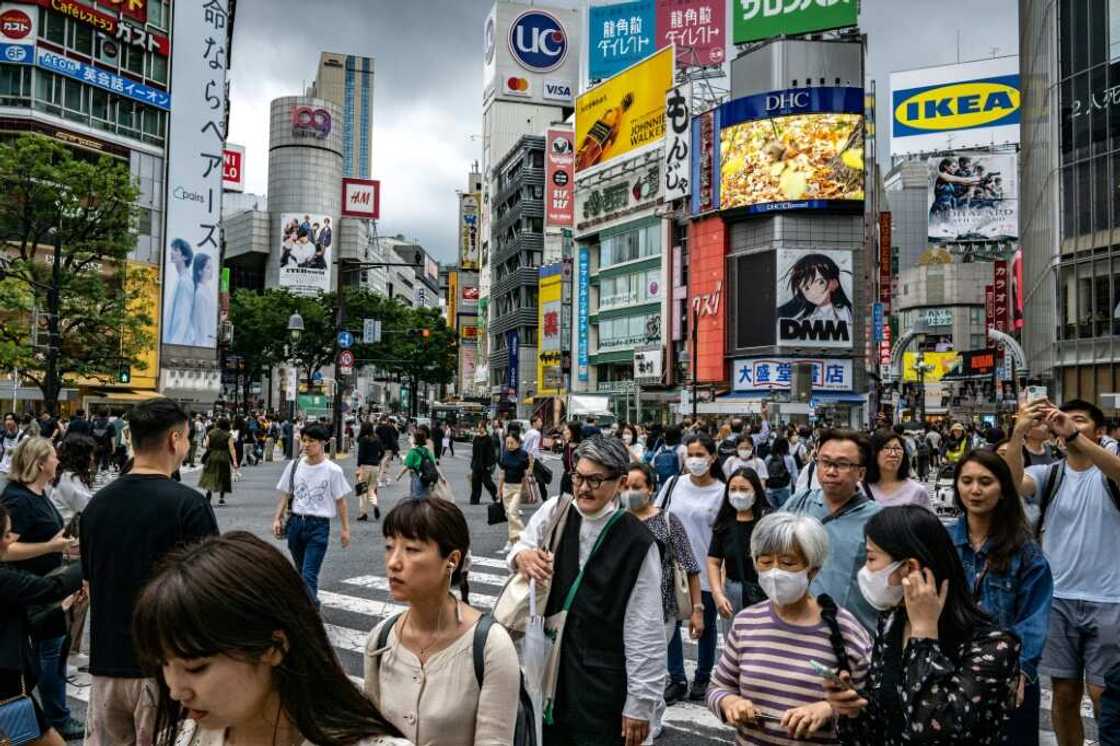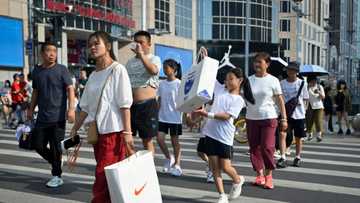Japanese economic growth smashes expectations

Source: AFP
PAY ATTENTION: Сheck out news that is picked exactly for YOU ➡️ click on “Recommended for you” and enjoy!
Quarterly growth data for Japan smashed expectations on Tuesday as car exports rebounded and tourists flooded back, but economists cautioned that it may not last.
The world's third-largest economy expanded 1.5 percent quarter-on-quarter in the three months to June, preliminary government data showed, the fastest rate since the fourth quarter of 2020.
This was almost double the average economist forecast of 0.8 percent, according to Bloomberg News, and followed revised growth of 0.9 percent in the previous quarter.
On an annualised basis, growth was 6.0 percent, more than double the market expectation of 2.9 percent, and giving Japan three-straight quarters of growth.
"Japan's exports have recovered as the supplies crisis eased for the auto sector while the yen's depreciation provided support," Ryutaro Kono, chief economist at BNP Paribas, wrote in a note issued before the data.
Hiroyuki Ueno, at SuMi TRUST, also said pent-up demand from the pandemic and an increase in capital investment were boosting the economy.
PAY ATTENTION: Join Legit.ng Telegram channel! Never miss important updates!
"The hospitality sector is expected to remain a driver of economic growth due to the increase in inbound tourism, as the pandemic is now in the rearview mirror," Ueno wrote ahead of the release.
"Although the number of inbound visitors to Japan has not yet returned to pre-pandemic levels, the per capita consumption of tourists during their stay in Japan has increased, partly due to the weak yen," he wrote.
Domestic doldrums
The chief economist of the International Monetary Fund said last month that Japan was "one of the few advanced economies that is doing better in 2023 than in 2022."
The Bank of Japan forecasts growth of 1.3 percent in the current fiscal year, which runs until March 31.
The strong reading for Japan follows well-received data for several other major economies including the United States, although China remains a worry.
However, economists said that the data also underscored the continued weakness of domestic demand as Japanese families struggle with rising prices.
Marcel Thieliant at Capital Economics said that real household disposable income plunged by 4.5 percent year-on-year in the quarter, and that it would continue to fall until the second half of next year.
Exports grew 3.2 percent compared with the previous quarter, mostly due to a "huge" 14 percent jump in car shipments as supply shortages eased.
"But with car exports now at a record-high and Japanese carmakers having fallen back in the electric vehicle race, that's unlikely to be sustained," Thieliant said, forecasting a "renewed slowdown across the second half of the year."
Source: AFP




